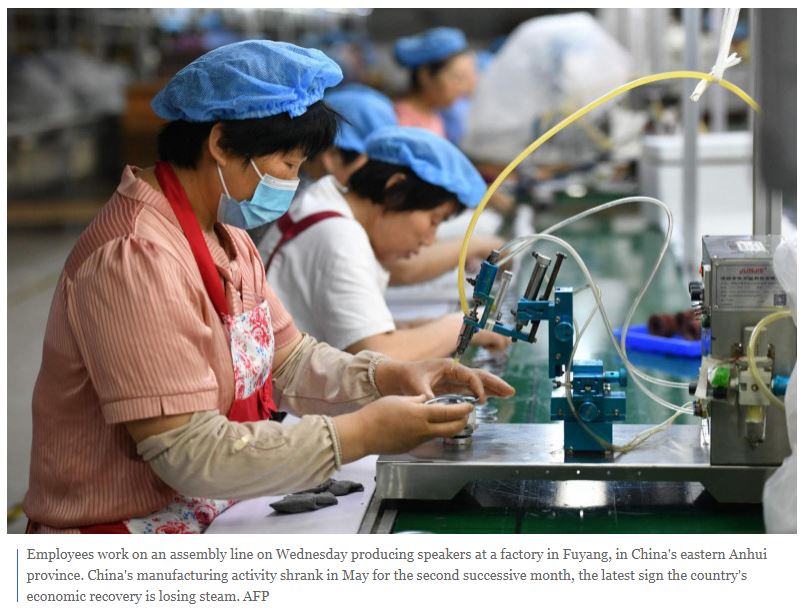Thailand: Investors fret as Chinese factories decelerate
Economists are concerned about a weakening Chinese economy, saying the mainland’s shaky recovery from the pandemic has pressured regional stock markets and the Thai economy.
China’s manufacturing purchasing managers’ index (PMI), which fell to a five-month low of 48.8 last month, was among the major reasons Asian stock markets declined on Wednesday, along with a dimming outlook for the US debt ceiling talks, said Nattawuth Chantana Kulapong, a strategist at Krungthai XSpring Securities.
The decline of the Chinese and American economies has negatively affected oil prices amid demand worries, hurting listed oil companies, which have a significant weighting on the Stock Exchange of Thailand (SET), he said.
The SET index slid 0.08% on Wednesday, in line with other Asian bourses as Chinese factory activity dipped, with the PMI falling to 48.8 in May from 49.2 in April. Hong Kong’s Hang Seng led regional losses, tumbling 1.94% to a new 2023 low, while Japan’s Nikkei dropped 1.41%.
In Australia, the S&P/ASX 200 was down 1.64%, while the Shanghai Composite and Shenzhen Component Index slid 0.6% and 0.7%, respectively.
Nattha Mahattana, assistant managing director for investment strategies at Krungthai Asset Management, said China’s PMI was below 50 for a second consecutive month because of a lack of demand in the Chinese market.
Foreign companies view the mainland as the best de-stocking location for products from upstream, midstream and downstream businesses, said Mr Nattha.
“Because demand is falling, the need for new manufacturing activities has declined,” he said.
The Chinese government is focusing on boosting exports, partly by depreciating the yuan, but Mr Nattha believes Beijing will soon introduce measures to increase domestic demand.
Youth unemployment in China reached a record high of 20%, putting a spotlight on the weak local economy, he said.
Arm Tungnirun, director of the Chinese Studies Center at the Institute of Asian Studies, said Beijing has yet to implement a substantial economic stimulus package, partly because of ongoing geopolitical issues.
Chinese companies have performed below expectations, further contributing to uncertainty surrounding the economic situation. As a result, people are exercising caution in their spending habits, said Mr Arm.
Stock market investors are eagerly awaiting any economic boost such as a stimulus package that injects money into the system, he recently told an event entitled “China Reopening: Challenges and Prospects” hosted by SCB Wealth.
Challenges persist in the form of real estate issues and geopolitical concerns.
“The resolution of real estate problems and the mitigation of geopolitical tensions remain important factors that will shape the economy’s future trajectory,” said Mr Arm, also a law lecturer at Chulalongkorn University.
Source: https://www.bangkokpost.com/business/2582664/investors-fret-as-chinese-factories-decelerate


 English
English




